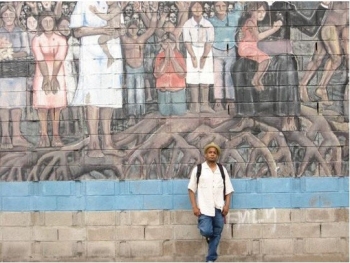Call for proposals

If you have an idea for a public lecture, exhibition, workshop or symposium, the Centre for Interdisciplinary Studies in Society and Culture (CISSC) would like to help make your event happen. The one condition is that the happening contribute to the expansion of interdisciplinary studies at Concordia by appealing to a super-departmental audience.
Applications are invited throughout the year from individual full-time faculty members in the Faculty of Arts and Science and the Faculty of Fine Arts, and may also be on behalf of a working group, research team or other research unit. Please allow at least 8 weeks ahead of your proposed event date.
CISSC may contribute $600, $900, $1,200 or $1,800 to the sponsorship of your happening. $1,800 is reserved for the organization of a conference, $1,200 for an invited speaker (i.e. visiting lecturer) or a keynote speaker at a conference, $900 or $600 for more local events.
CISSC contributions are also sometimes used as matching funds for purposes of an application to the Aid to Research-Related Events (ARRE) program run by the Office of the Vice-President Research, Innovation and Impact, or a SSHRC Connections grant. Note: Each faculty has its own internal deadlines for applications to the ARRE (twice per year) or Connections grant program (four times per year). Please check with your faculty research facilitator. CISSC will expedite the review of applications that solicit matching funds. In all cases we aspire to get back to you with news of our decision within 10 days of receiving your application.
All applications are reviewed by the CISSC Steering Committee. Criteria include academic or artistic stature of the invited speaker, interest of the topic and potential contribution to the advancement of interdisciplinary studies at Concordia. Eligible expenses include such items as airfare, local transportation and meals (alcohol is not reimbursable) and honoraria.
The Centre for Interdisciplinary Studies in Society and Culture promotes interdisciplinary research, discussion, and scholarship across the Humanities, Social Sciences, and the Arts. As part of this mission, the Centre supports a number of Working Groups each year. Working groups consist of three or more faculty members, along with graduate students and other researchers, who meet to address a topic not currently covered in an existing disciplinary field.
The program creates spaces for interdisciplinary discussion and informal dialogue, leading to collaboration and the formation of new research partnerships. Working groups may invite external speakers, hold symposia, organize exhibitions or performances, constitute reading circles, or share works in progress, among other activities.
To view an overview of current and past Working Groups topics and membership, visit the Working Group page.
Eligibility and Application Requirements
The call for working group proposals for 2025-2026 will be circulated in early March, 2024. The application deadline is Tuesday, April 22nd, 2025.
The following information is required:
- name, topic, and rationale for the group’s interdisciplinary character
- key questions that the group will address
- proposed activities
- projected budget (including any outside funding sources)
It is important that the application also include provision for the inclusion of graduate students in the group’s activities. Each group will appoint a graduate student coordinator. The application form must be signed by the Working Group organizers. Signatures from two or more additional Concordia faculty who have agreed to participate may be uploaded to the application form or sent independently by email.
Funding
Working groups are awarded up to $1,750 per year for activities spanning the academic year, from May, 2024 to April, 2025. An additional honorarium of $750 is available for the graduate student coordinator for each group.
Proposals will be reviewed by the CISSC Steering Committee and results announced in early May, 2024.

